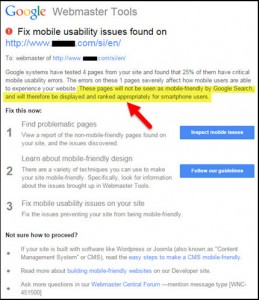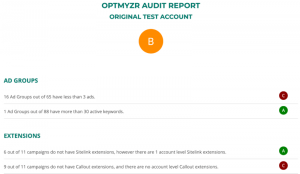— August 20, 2018
When interviewing for a new job, it’s important to evaluate all of the ins and outs of the role and company. Ensuring your skills are the right match for the role and that the company culture aligns with your personality and work style are important. However, as a marketing talent agency, we often see candidates overlook one critical factor – the person they’ll be reporting to.
Your boss has a significant impact on your performance in a job and how you feel at work on a daily basis. They can either help or damage your productivity and mental well-being.
The best way to deal with a toxic boss is to not work for one. The interview and hiring process should be a two-way street. Before you accept any opportunity, carefully consider and evaluate the person you will be reporting to.
If you learn how to identify the warning signs of a bad boss during the interview process, you can avoid a potentially toxic environment. Marketing recruiters want you to invest your time wisely and to take the best preventative measures to ensure you place yourself in a healthy and fulfilling work environment. Here’s how:
4 Questions to Ask to Properly Evaluate Your Next Employer
Figure out How Many People Have Been in the Role
Discover how many people have been in the role you’re interviewing for, and why it’s open. Are there justifiable reasons for a major shift? If the turnover rate is high or people don’t stay long within the role without any valid reasons, it’s a red flag.
Furthermore, learn how many people have recently been hired and how long employees typically stay in the organization. This will help you understand the general satisfaction of employees in the company.
Figure out What Their Leadership Style Is

If you’re directly interviewing with the potential manager, ask what their leadership style is. Are they a servant leader or are they hands-off? They likely won’t tell you if they’re a micro-manager but the way they respond can be a tell-tale sign. Your manager should be able to demonstrate that they adequately support their direct reports without sounding pompous or self-centered.
If you’re interviewing with the head of HR or a potential colleague, don’t hesitate to ask “What’s the boss’ management style?” or “What’s it really like to work with __?”
You can tell a lot from the context of the responses you get from either side to determine what type of leadership a boss practices. Use this to determine if the leadership style fits with your own personality and working style. You want to avoid any signs leading to micro-managers or incompetent leaders.
Check Out Their Background
There are many surprisingly easy ways to learn more about a potential boss simply by conducting a bit of research on Google.
Just as marketing recruiters thoroughly investigate you by checking your background and contacting previous employers, make sure you do the same with your potential boss.
Check out Glassdoor and gauge what previous and current employees are saying about the organization and its leaders. However, be aware that Glassdoor reviews do not always accurately portray pros and cons that are important to marketing talent. Here is what you must take into account when using Glassdoor:
LinkedIn Is a Goldmine for Information
Any marketing talent agency will check out your social media accounts to gauge your candidacy, especially on LinkedIn.
Scope out recommendations from previous or current direct reports and take a look at their connections. Has he or she recommended any of those people? This is a sign that they are great at building strong relationships with people they’ve worked with. What are their previous roles? If a manager switched around jobs frequently in a short period of time, it could be a bad sign.
LinkedIn is a great way to use someone’s background and work experience to make an accurate assessment of the type of boss you may be working with.
How Do They Motivate and Talk About Their Team?

Does it seem like the boss takes all the credit for success or are they proud to speak on their team’s efforts? Do they celebrate wins as a team, or is everyone merited on an individual basis?
You can tell a lot by the way they speak. If they use “we” to describe the team’s performance, it’s a good sign that they pride themselves in the efforts of their team.
How do they help their team deal with the stresses of a job? Marketing involves a lot of trial-and-error, and not every campaign will be successful. When employee morale is down, how does the boss motivate and inspire the team? This is a key way to determine how they drive enthusiasm and their team to succeed even during hard times.
Connect With Previous and Current Team Members
Connect with people you see who are on the team or who’ve been direct reports to your potential boss in the past. Taking a look at their profiles and job descriptions can help you understand the tasks you’ll take on.
You can also personally reach out to them to learn more about the role. If you do and ask for their off-the-record opinions, do so professionally. You don’t want it to seem like you’re prying for the inside scoop. However, if people have left because of the boss and toxic environment, they’ll likely want to advise potential employees.
Get an Understanding of What They Expect Out of Their Employees

Understanding what a boss wants and expects out of their team members early on is important. Ask “What are your goals as a manager and the leader for the team?”
Use this question to determine if they believe in work-life balance or if they expect the team to be working 80 hours a week. Make sure you’re clear on what you want in a future boss so you can better assess whether someone aligns with your own professional goals and personal values.
Closing Words
The more you know about your future boss and employer, the better. Every new opportunity is a huge step, and that means making sure you’re working for a great boss and organization.
Taking these steps and asking these questions isn’t necessarily going to guarantee that you’ll be in a picture-perfect workplace, but using them to investigate your potential employer can help guide you toward making a smarter decision.
Business & Finance Articles on Business 2 Community
(80)
Report Post





